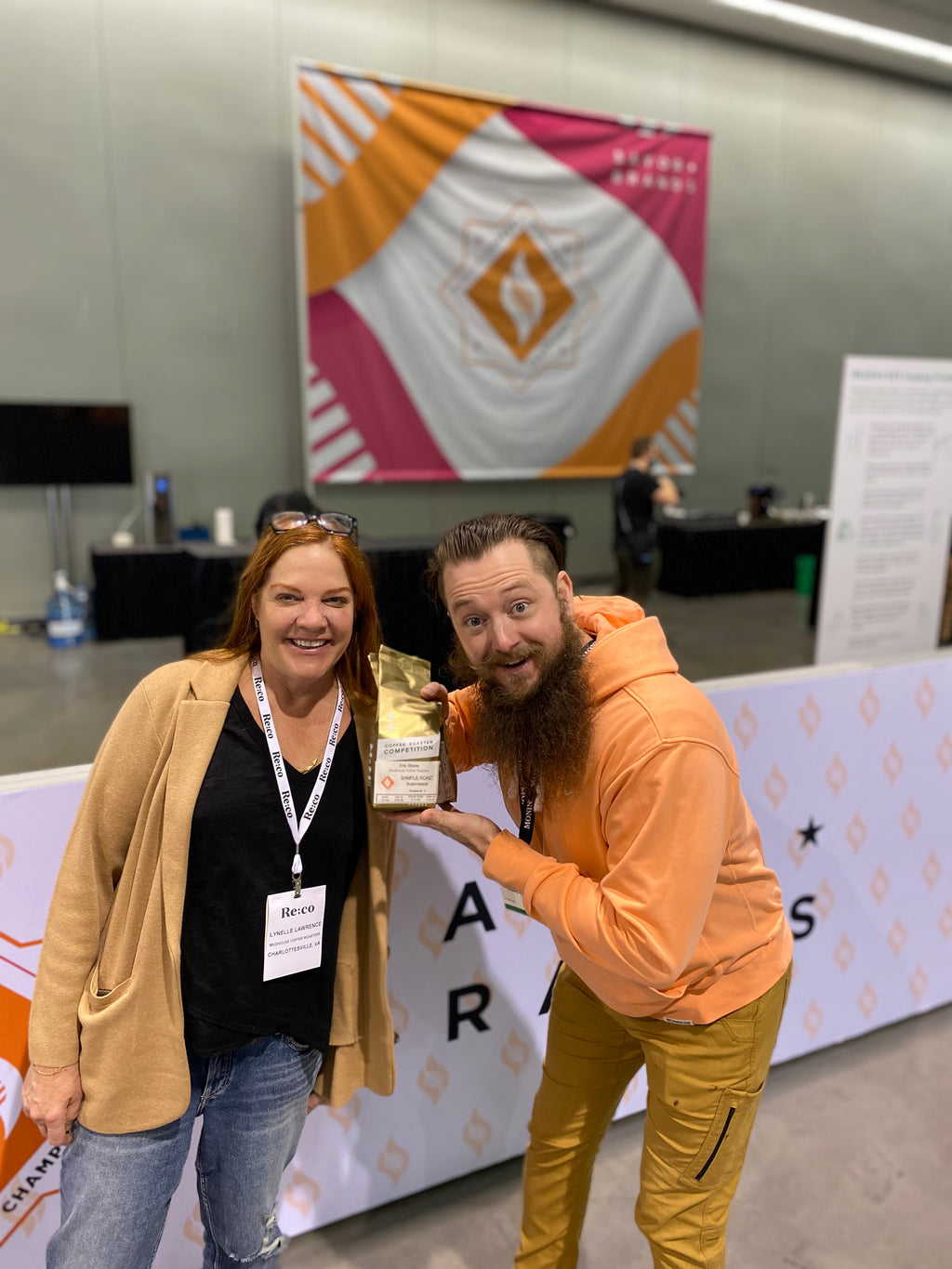Earlier this month, I headed up to Boston as part of Team Mud to attend the 2022 Specialty Coffee Association (SCA) Expo and compete in the finals of the United States Roasting Championship. Both of these events are generally held yearly, however due to the pandemic it had been nearly three years since we attended either. This year’s Roaster Championship was technically a continuation of the 2019-2020 season. It felt great to be back at it with other members of the specialty coffee community.
The Specialty Coffee Expo is quite the experience. People from all over the world come together to explore, promote, share, and sell any and all things related to coffee. From green beans and the machines used to roast them, to bags, tags, cups, milks, honeys, books, etc., if it is coffee related it can most likely be found in a booth on the expo floor. Organizations of farmers and coops from various countries come to share their very best coffees; importers, exporters, and everyone in between bring their favorites as well. Experts with PhD's in everything from chemistry to marketing hold lectures and seminars all with the end goal of advancing specialty coffee. Even as a coffee professional it can be overwhelming at times.
I spent my time on the floor exploring the never ending sea of coffee and coffee related products. I stopped by booths of friends, producers, and current products we use. We are considering upgrading our current roaster to a newer model so I swung by our friends at the Giesen booth and got the rundown of the newest model Giesen W15 roaster. On our recent trip to Panama we met former Barista Champion and current coffee producer extraordinaire Mikael Jasin from Indonesia. Mikael is part of a new cadre of Indonesian coffee producers at the forefront of revolutionizing the way coffee is grown and processed in the archipelago. Their experiments with different fermentations and drying methods have already begun to unlock a deep pool of vast and unique coffee experiences from this region. We tasted some of the cleanest and most exotic Indonesian coffees we’ve ever come across.

While the expo floor, lectures, and cuppings were great, that was only part of the reason I was in Boston. My main focus of the weekend was the finals of the US Roasting Championship, a competition I have been competing in since 2016. This year was particularly challenging for myself and some of the other competitors I spoke with. On top of coming out of the pandemic restart, this year a new roasting machine manufacturing company sponsored the event. Not a single roaster had more than a couple of hours of practice on the new Roastronix Stronghold S7.

Unlike most conventional roasting machines, the Stronghold S7 is different in a number of ways. For starters, the machine is completely electric. While most roasters rely on a burner powered by natural gas or propane, these machines use hot air and a halogen bulb to heat and roast the coffee. Another difference is in the machine's drum, the chamber where the coffee is roasted. Most machines have a rotating barrel with fins in it that keep the coffee from sticking to the side of the drum, the Strongholds instead have a paddle that spins and keeps the coffee moving in the drum. Lastly, on the Stronghold you can change the temperature of the internal walls of the drum. All of these variables are able to be controlled by the operator and allow for the creation of some pretty unique roast profiles. Despite the difficulty of getting a hang of how to roast on the Stronghold, I was pleasantly surprised by the resulting cups it was able to produce.
The competition was broken down into multiple stages that spanned 3 days. The first stage was the sample roasting stage. Here each competitor received a small amount of the competition coffee to roast for flavor notes and insights into the final roast. The second stage was green grading, where competitors were given a random sample of coffee and tasked to find any defects, the moisture content, density, and screen size of the coffee. Next came the practice roast where we received enough coffee to roast a full batch in the Stronghold, however the coffee was different from the final competition coffee. The last stage was the final roast of the competition coffee. Afterwards, all coffees were blindly judged and assigned a score. This score was then added to our green grading score, as well as a score assigned to how well we matched our intended roast profile and the coffee's final intended taste in the cup.

Unfortunately, this was not my year. While I am still waiting on the final list of results I was unable to place in the top 6. I would again like to extend my congratulations to everyone that did place. It was one of the more, if not the most difficult competitions I have experienced and everyone should be proud to have made it this far. For me, these competitions are always an enormous learning experience, and I am excited to bring back new ideas and energy to the Mudhouse roastery, and lab. I look forward to competing again next year, in what will hopefully be a lot less of a prolonged season.



